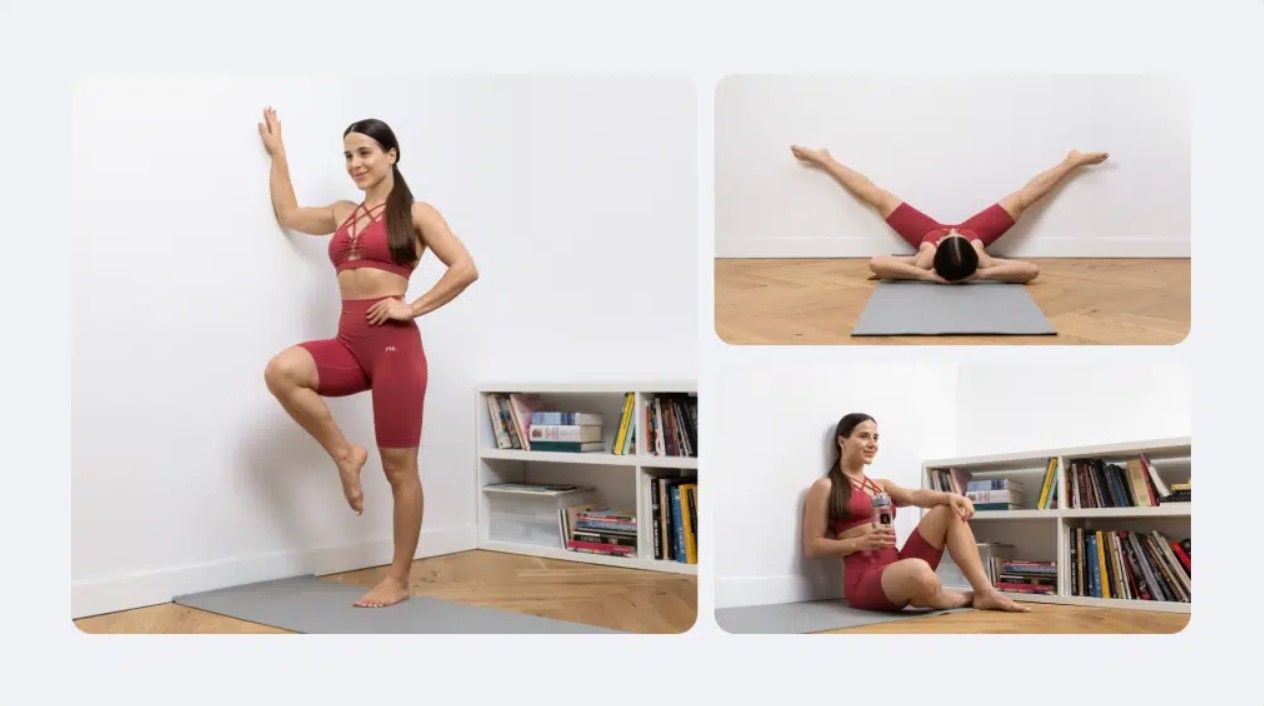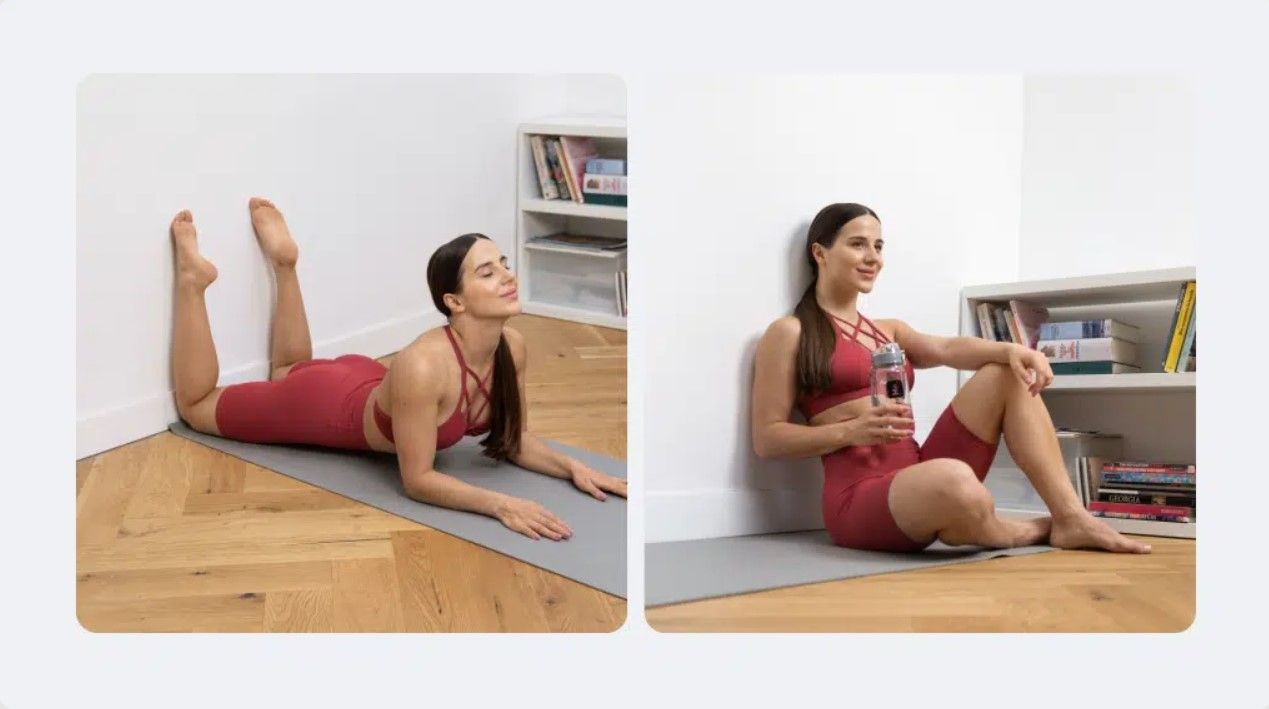[ad_1]
In the realm of fitness and wellness, Wall Pilates has emerged as a revolutionary approach that combines the principles of traditional Pilates with a vertical twist. This innovative workout regimen harnesses the power of gravity and the support of a wall to provide a fresh perspective on core strengthening and overall body toning. In this article, we delve into the world of Wall Pilates, exploring its benefits, key exercises, and why it’s gaining immense popularity in the fitness community.
Benefits of Wall Pilates:

Wall Pilates offers a myriad of benefits that set it apart from conventional Pilates routines. By utilizing the wall as a prop, practitioners can experience heightened resistance and stability, leading to improved muscle engagement and faster results. Here are some key advantages:
- Enhanced Core Engagement: Wall Pilates encourages deep core muscle activation as you work against gravity’s resistance. This, in turn, helps you build a stronger core, leading to improved posture and reduced risk of injuries.
- Full-Body Integration: While core engagement is at the heart of Wall Pilates, the exercises also involve various muscle groups, promoting balanced and harmonious body development.
- Spinal Alignment: The wall acts as a guide for proper alignment, aiding in maintaining a neutral spine during exercises. This is particularly beneficial for those with back issues.
- Increased Flexibility: Wall-assisted stretches and movements can lead to improved flexibility, helping to alleviate muscle tension and increase the overall range of motion.
- Mind-Body Connection: Like traditional Pilates, Wall Pilates emphasizes mindfulness and concentration. The support of the wall allows you to focus on precise movements and breathing techniques.
Key Wall Pilates Exercises:

- Wall Roll Down: Stand with your back against the wall and gently roll down, segment by segment, maintaining contact with the wall. This exercise promotes spine articulation and stretches the hamstrings.
- Wall Squats: Lean against the wall with your feet hip-width apart and slide down into a squat position. This exercise targets the quads, hamstrings, and glutes.
- Wall Teaser: Lie on your back with your legs up the wall, forming an “L” shape. Lift your head, neck, and shoulders off the floor while reaching your arms toward your feet. This exercise challenges your core and enhances upper body strength.
- Wall Bridge: Lie on your back with your feet on the wall and knees bent. Lift your hips off the floor, creating a bridge-like position. This exercise engages the glutes, hamstrings, and lower back muscles.
- Wall Plank: Assume a plank position with your feet against the wall and your hands on the floor. This variation of the plank intensifies core engagement and builds upper-body strength.
Why Wall Pilates is Trending:
The surge in popularity of Wall Pilates can be attributed to its unique approach to fitness. As people seek more efficient and engaging workouts, Wall Pilates offers a refreshing change from traditional exercises. Additionally, its adaptability makes it suitable for various fitness levels and body types, further widening its appeal. The fusion of strength training, flexibility work, and mindfulness aligns well with the holistic approach to health that many individuals are embracing.
Conclusion:
Wall Pilates represents a breakthrough in the world of fitness, providing a vertical dimension to the well-established Pilates practice. With its host of benefits, creative exercises, and adaptability, Wall Pilates is redefining how we approach core strengthening and body toning. As the fitness community continues to embrace innovation, Wall Pilates stands tall as a transformative and effective workout regimen that can elevate your fitness journey to new heights. Embrace the wall, engage your core, and experience the difference for yourself.
Disclaimer
The Content is not intended to be a substitute for professional medical advice, diagnosis, or treatment. Always seek the advice of your physician or other qualified health provider with any questions you may have regarding a medical condition.
[ad_2]
Source link

Hi! I’m a dedicated health blogger sharing valuable insights, natural remedies, and the latest scientific breakthroughs to help readers lead healthier lives. With a holistic approach to wellness, I empower individuals with accessible and actionable content, debunking myths and offering practical tips for incorporating healthy habits.